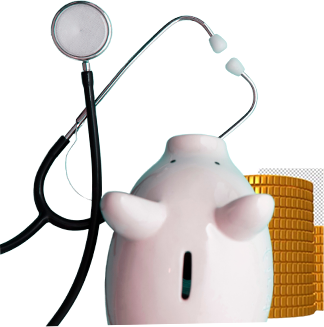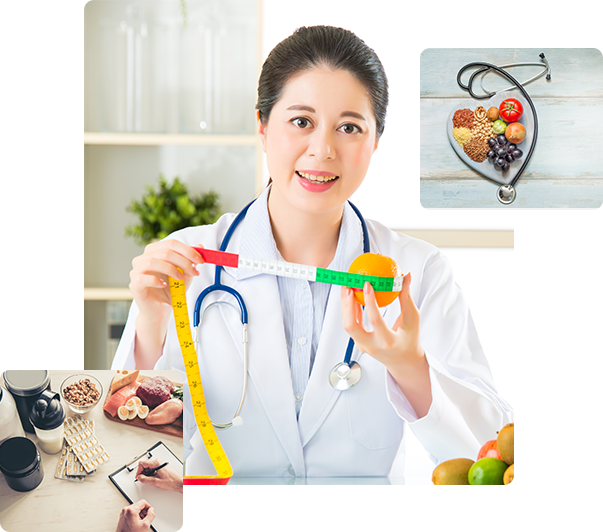Nutritionist for Pregnant Women

Contact Us
During the pregnancy phase, there must be a significant change in the diet. Apart from the regular diet, you need to add some extra nutrition to your plate. This diet must be balanced properly for the mother and the developing baby.
During pregnancy, it is important to boost your intake of specific essential nutrients. It includes protein, calcium, iron and vitamins. You can achieve this by adding a diverse range of whole grains, lean meats, seafood, and plant-based foods into your diet.
The pregnancy diet has to be well-curated with the necessary nutrients. It is better to consult a professional nutritionist for pregnant women to help them develop the right diet plan. You need to listen to the expert and take note of calorie intake and dietary recommendations.
At Qua, our pregnancy nutritionist understands the nutrient requirements for pregnant women and guides you throughout your journey to motherhood.

Special Nutritional Needs of Pregnant Woman
Yes, pregnancy brings specific nutritional needs to support both your health and your baby’s development.
During pregnancy, your body undergoes certain changes to support the growth and development of your baby. This is what increases your nutritional needs. Essential nutrients like protein, calcium, iron, and folate are crucial for foetal development, bone health, and preventing anaemia.
Increased blood volume and metabolic demands require additional energy and nutrients. Meeting these needs with the help of a pregnancy nutritionist ensures proper foetal growth, reduces the risk of complications, & supports your overall health. A well-balanced diet is typically recommended by our nutritionists for pregnant women to provide essential nutrients for the baby’s development and support the mother’s overall well-being during this critical period.
Ideal Foods to Eat During Pregnancy
Pregnant women must be aware of what they are eating. Here are the ideal foods to include in the diet during pregnancy;
- Vegetables: Include veggies such as carrots, tomatoes, pumpkin, spinach, sweet potatoes, cooked greens, and red sweet peppers. These are high in vitamin A and potassium.
- Fruits: Add cantaloupe, mangoes, honeydew, bananas, oranges, and apricots.
- Dairy: Better to go for fat-free or low-fat yoghurt, skim milk and soymilk. These are rich in calcium, potassium and vitamins.
- Grains: For breakfast, go for ready-to-eat cereals/cooked cereals.
- Proteins: To get good plant-based protein, eat beans, peas, nuts, and seeds.

Dietary and Caloric Recommendations by Pregnancy Nutritionists
Nothing to be surprised about when you crave more food during pregnancy. Your body has started craving more nutritional requirements because you are nourishing both yourself and your developing baby. So, you need to increase the amount of both micronutrients and macronutrients in your diet to support your health and the growth of your baby.
Micronutrients are dietary nutrients like vitamins and minerals required in small amounts. Macronutrients are necessary in larger amounts as they provide energy. A pregnant woman will need more of each nutrient type during the pregnancy period.
For a healthy pregnancy, women need to eat a well-rounded diet, including the right nutrients. Here are the key nutrients to focus on;
- Protein: It is highly essential for the growth of foetal tissues. This includes the brain and supports increased blood volume. You can add lean meats, fish, eggs, legumes, and nuts.
- Calcium: It is crucial for the development of your baby’s bones and teeth. Add dairy products, plant-based milks and almonds.
- Folate (Vitamin B9): Vital for reducing the risk of neural tube defects. Leafy greens, fortified cereals, and legumes are excellent sources.
- Iron: It is important to prevent anaemia and ensure adequate oxygen supply to your baby. Good sources are red meat, poultry, fish, legumes, and fortified cereals. To enhance absorption combine iron-rich foods with vitamin C-rich foods like oranges or bell peppers.
- Omega-3 Fatty Acids: Beneficial for your baby’s brain and eye development. Add fatty fish like salmon and nuts like walnuts into the diet.
- Hydration: You need to drink adequate water to support amniotic fluid and blood volume.
| Nutrient | Daily requirements of a pregnant woman |
| Calcium | 1200 mg |
| Iron | 27 mg |
| Folate | 600–800 micrograms (mcg) |
| Protein | 70–100 grams (g) |
So, properly balanced nutrition, combined with prenatal vitamins, is advised by the nutritionist for pregnant women. The above-listed nutrients must be added to your daily diet plan. This will ensure a healthy pregnancy for both the mother and the baby.
To support a healthy pregnancy, an additional 300 calories per day is generally required. For most women with a normal weight, the total calorie intake needed is:
- You need 1,800 calories every day in the first trimester
- About 2,200 calories each day after the second trimester starts
- And 2,400 calories per day for the entire third trimester
Fluid Intake During Pregnancy
Adequate fluid intake during pregnancy is essential for maintaining hydration and supporting various bodily functions. Drinking plenty of water helps manage increased blood volume, supports amniotic fluid levels, and aids in nutrient transport. You need to aim for about 8 to 10 cups of water daily.
When you don’t feel like drinking water all the time, you can also include herbal teas and diluted fruit juices. Proper hydration helps to prevent constipation, reduces the risk of urinary tract infections, and supports overall well-being. It is recommended for pregnant women to always listen to their body’s signals and consult their nutritionist for personalised recommendations.
There are also some drinks to avoid, such as drinks with caffeine and sugar content. Even all forms of alcohol must be avoided. You can take in enough fluids in the form of juices and soups. The nutritionist will help you by suggesting other alternatives, such as restricting your caffeine and artificial sweeteners intake.


Foods to Avoid During Pregnancy
Below are some foods to avoid during pregnancy. Here is the list of food to cut down;
- Unpasteurized milk and foods made with it, such as soft cheeses.
- Completely cut luncheon meats and hot dogs unless.
- Undercooked and raw seafood, meat and eggs.
- It is even suggested not to eat sushi as it is made with raw fish.
- Meat spreads and refrigerated pâté.
- Refrigerated smoked seafood.
- Avoid eggs until the yolks and whites are firm due to a higher risk of food poisoning caused by bacteria leading to food-borne illness.
- Avoid undercooked poultry, meat or eggs
- Avoid consuming pre-made meat or seafood salads, such as ham salad, chicken salad and tuna salad.
How Much Weight Should I Gain During My Pregnancy?
Most women in the pregnancy period need to gain weight between 25 to 35 pounds, which is 11.5 to 16 kg. Most people typically gain 2 to 4 pounds, i.e. 1 to 2 kgs, during the first trimester. It is followed by about 1 pound (0.5 kilogram) per week for the remainder of the pregnancy. However, the total amount of weight gain can vary based on individual circumstances.
- Overweight women should aim to gain less weight, typically between 10 to 25 pounds (4 to 11 kgs), depending on their pre-pregnancy weight.
- Underweight women need to gain more, generally between 28 to 40 pounds (13 to 18 kgs).
- Women expecting multiple babies, like twins, will need to gain additional weight. For twins, the recommended gain is between 37 to 54 pounds (16.5 to 24.5 kgs).
Why Choose QUA Nutrition?
Suppose you are looking for a custom-curated nutrition plan for your pregnancy period. QUA Nutrition will be your one-stop destination. Our expert pregnancy nutritionists will assist you in making your diet plan loaded with essential nutrition for you and your baby. We offer a comprehensive nutrition plan by going through your ongoing health status. Here’s what you will experience by choosing our plan;
-
- Personalised nutrition strategy
- Highly qualified and experienced nutritionists
- Scientific Nutrition Strategy that integrates genetics and other diagnostic reports.
- Comprehensive Lifestyle Assessment is used to evaluate lifestyle and dietary choices in detail.
- Regular follow-ups that include ongoing communication, feedback, and updates to the plan.
- Collaborative System – coordinated effort among dietitians, strategists, and quality controllers.
- Advanced Proprietary Software incorporated with cutting-edge technology for optimal results.

FAQs
As a pregnant woman, what essential nutrients do I need to include in my diet plan for pregnant women?
You need to increase amounts of specific nutrients such as protein, iron, folic acid, iodine, and choline. Additionally, you need to consume an adequate intake of vitamin D, calcium, potassium, and fibre. Making thoughtful food choices will support a healthy pregnancy and contribute to your baby’s well-being.
At what period during pregnancy is nutrition very important?
A mother’s diet can impact both pregnancy and childhood outcomes. During the first trimester, nutrition plays a pivotal role in the development and differentiation of various organs. In contrast, diet later in pregnancy is crucial for overall foetal growth and brain development.
What vitamins are essential during pregnancy?
Apart from checking for iron and folic acid intake, you need to look for a prenatal vitamin that consists of calcium and vitamin D. These help to promote the baby’s bones and teeth development. It is also beneficial to look for prenatal vitamins such as vitamin E, vitamin C, vitamin A, B vitamins, iodine, and zinc.
Why is a pregnancy nutritionist important for expecting mothers?
A pregnancy nutritionist ensures that you receive the right balance of nutrients essential for both maternal health and fetal development. They help manage pregnancy-related concerns like morning sickness, gestational diabetes, and weight gain while optimizing your diet for a healthy pregnancy.
What kind of diet plan will I receive during pregnancy?
A nutritionist for pregnant women will create a personalized diet plan based on your trimester, medical history, lifestyle, and nutritional requirements. The plan will focus on essential nutrients like folic acid, iron, calcium, and protein while addressing any food aversions or cravings.
Can a pregnancy nutritionist help with gestational diabetes?
Yes, a pregnancy nutritionist can help manage gestational diabetes by recommending a diet that stabilizes blood sugar levels, ensuring both maternal and fetal well-being. They provide guidance on carbohydrate intake, portion control, and healthy meal planning.
Is a pregnancy diet different for each trimester?
Yes, nutritional needs vary across trimesters. The first trimester focuses on essential vitamins and managing nausea, the second trimester emphasizes increased calorie intake and key nutrients for fetal growth, and the third trimester includes foods that support labour preparation and breastfeeding.
Can a nutritionist help with postpartum recovery and breastfeeding?
Absolutely! A nutritionist for pregnant woman can guide you through postpartum nutrition to support recovery, energy levels, and milk production for breastfeeding. They provide meal plans that aid in healing and ensure a balanced diet for both the mother and baby.

